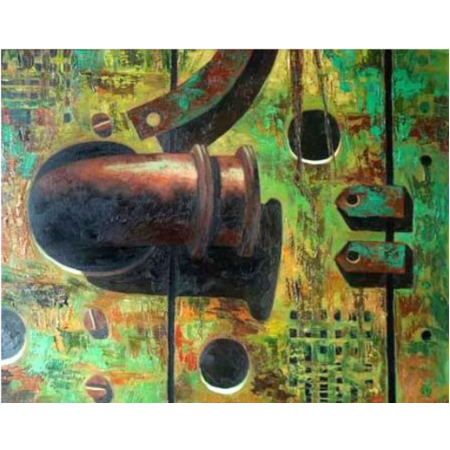Sanjay Bhattacharya
For Sanjay Bhattacharya, school was the most boring thing on earth. He was clearly not interested in books or studies. After Sanjay finished school, he decided he wanted to have nothing more to do with books. He went to the Government College of Arts & Crafts, Kolkotta and graduated in 1982 in fine arts.
The youngest son of four children of a retired account officer, Sanjay says he was never aware that he had a hidden artistic talent and an enormous capacity for hard work. “I got appalling grades in the first year,” he laughs.
After graduating, he joined an ad agency, Clarion, as an illustrator and shifted to Delhi. “On the first day, they asked me to do one an ad on tyres. However much I tried, the nature of work did not agree with my artistic self,” says Sanjay. He left the agency nine months later and joined Hindustan Thomson Associates. “They gave me the freedom to freelance,” he recalls. Sanjay rented a place in Delhi and managed to complete 16 or 17 watercolours and some oils. He exhibited them in Dhoomimal Gallery. As luck would have it, all the five water colour were sold out within a week. The year was 1988.
Sanjay’s first inspiration was the Phantom. Yes, the phantom of those famous Phantom comics. “I used to draw Phantom everywhere, on the walls, on the doors,” he says. But Sanjay—- one of the most gifted students of realist painter Bikash Bhattacharya — has moved quite far from the realms of fantasy. He practices realism as a genre of art. “My genre of art had to compete with the camera, which copies reality better than the canvas. So we have had to find ways to blend the inner and outer realities, or maybe confront one to another,” he adds.
Sanjay’s figurative images are quite close to those found in the works of the Dutch realist painters or the French 18th century painters.
Either oil paintings or watercolours, what has really inspired most of Sanjay’s works are the inner and outer realities evoked by architectural elements. Like old, vacant houses. “They are of great interest to me. They tell me stories of people who lived there, who loved there, or fought there. There is a lot of colour and texture in their decaying walls, if only we took the trouble of seeing them.” So, in some of his works, we find dark bedrooms with old style table, dressing table, chairs, part of a four poster, or bedstead with massive, ornately carved head-board set against bright sunlight coming in through open windows.
It’s not just empty houses that Sanjay has painted. He has also painted lived in houses. He has painted a mother combing her daughters’ hair; the family silver locked inside the cupboard or the kitchen with its beautiful pots and pans.
A lot of his paintings are of the lower middle class families, who are not really heartbreakingly poor, but almost on the edge.
Along with homes and families, Sanjay’s work consists of realistic portraiture. Like the exhibition he did on late Prime Minister Rajiv Gandhi’s portraits. There are no larger than life images here. The interiors against which he has painted Gandhi are untelling and cryptic behind their dark brown layers.
Besides homes and portraits, Sanjay’s paintings are all about Calcutta. His total involvement with the streets of Calcutta comes through on his canvas. There is Calcutta decaying, Calcutta the city of dilapidated palaces of the 19th century rich, Calcutta of the faded British grandeur.
While talking about the impact of art, he narrates an experience he had when he climbed up a mountain path in Assam. Suddenly as he reached a point, he beheld an awe-aspiring scene of the river Brahamaputra. A small boy who had come up the path upon beholding the seen cried out in spontaneous wonder. Sanjay says, “I realized that a work of art too must arouse such a response. A painting must make an impact, hold one spell bound.”
Sanjay says that sometimes he misses being that little boy, who would walk along the footpath at Park Street, in Calcutta, towards the Out ram Ghat or Howrah bridge, with a drawing board in hand. “Now I sit in tall buildings, and have lost touch with reality,” he sighs.
Sanjay Bhattacharya spends his time living between Delhi and Kolkotta.




